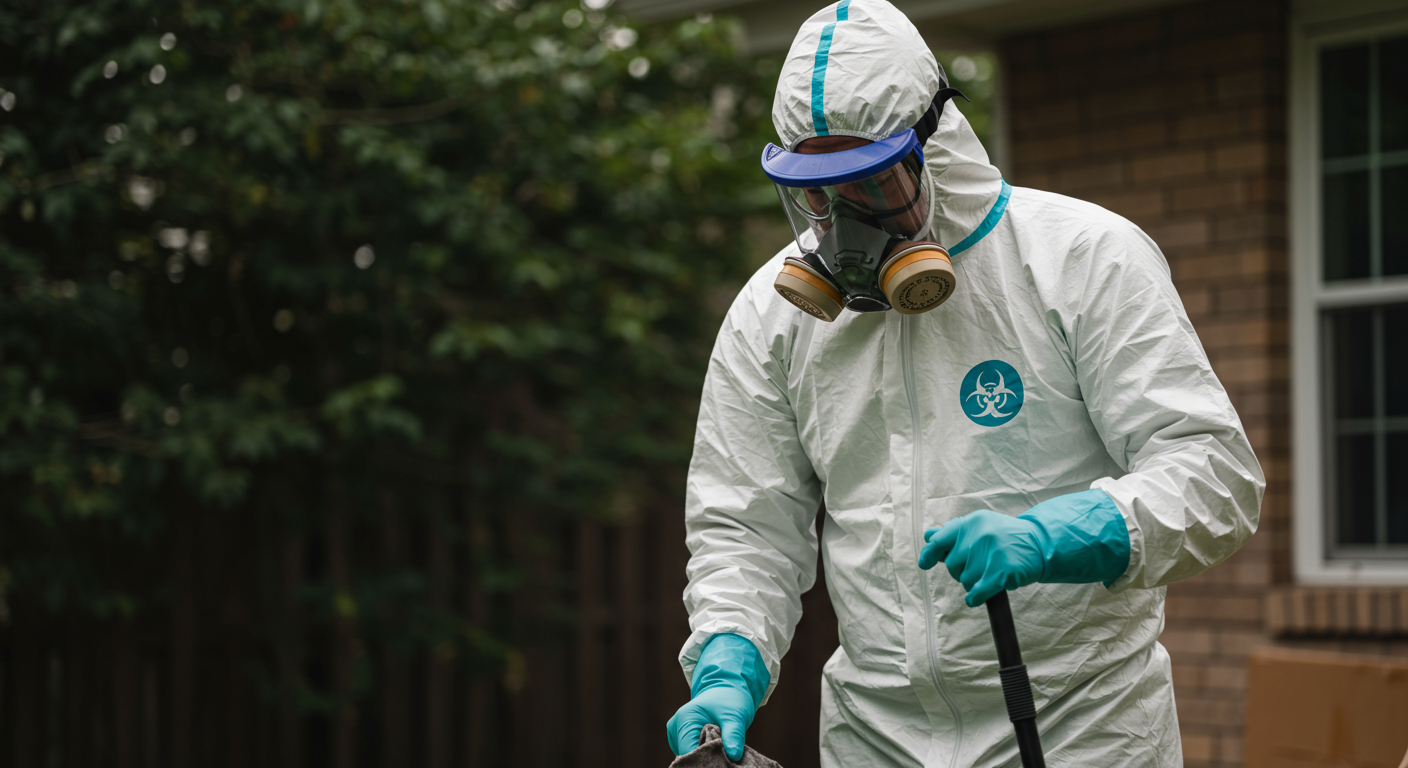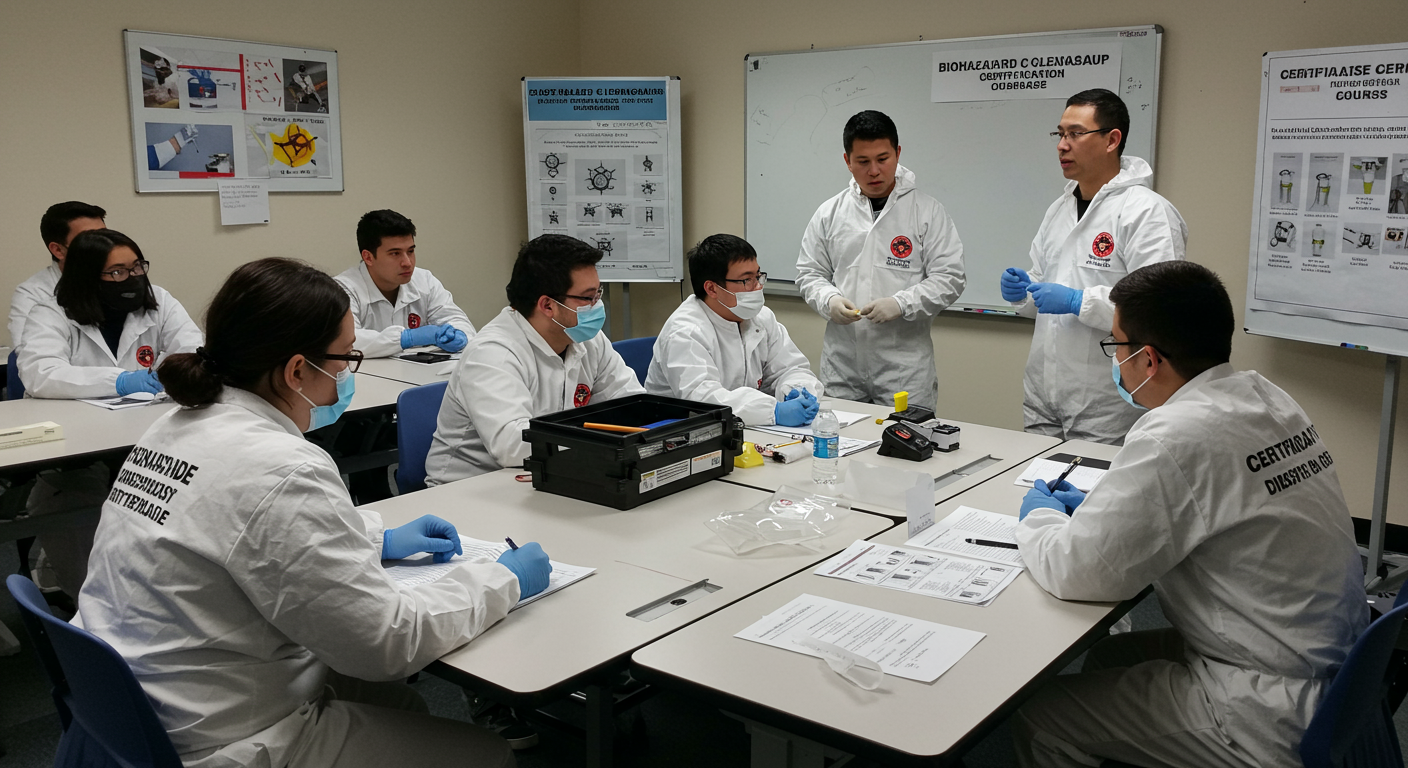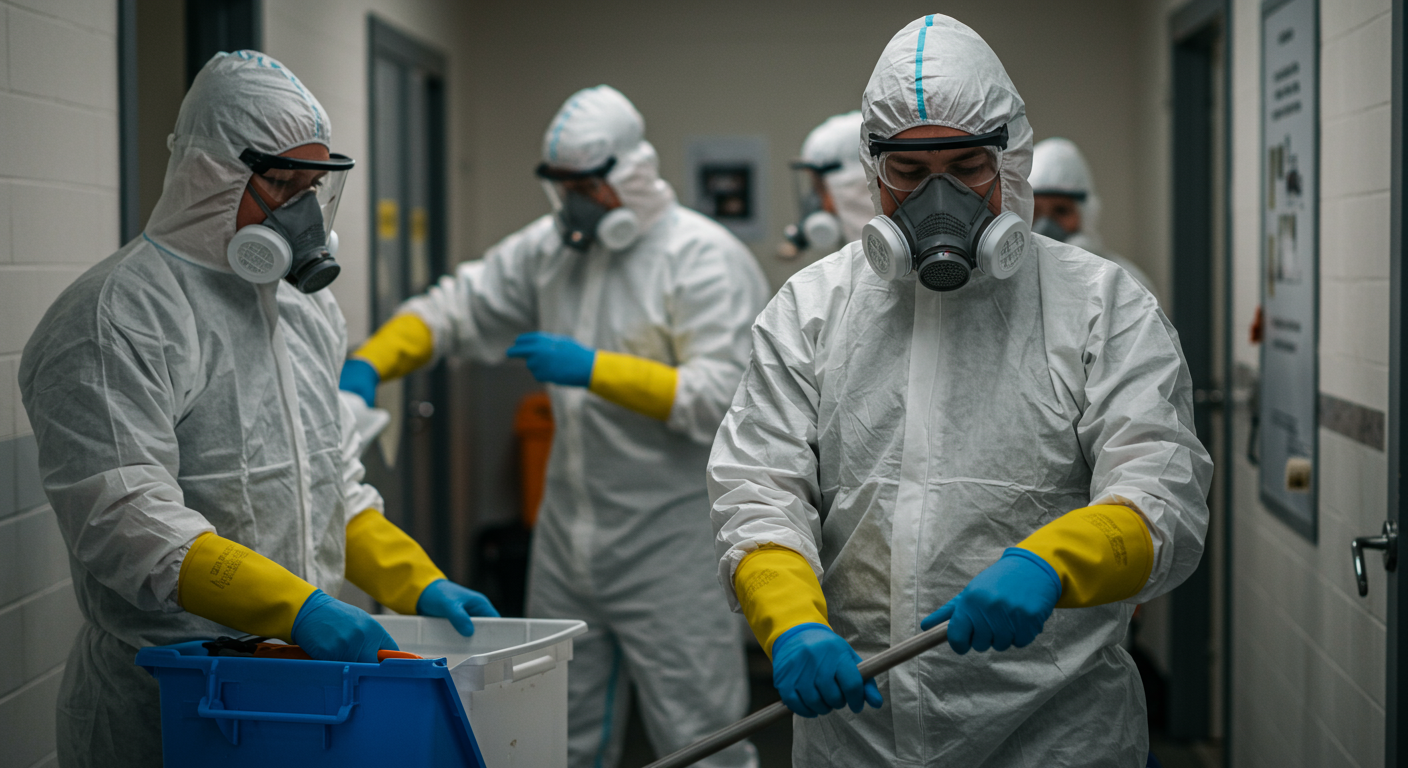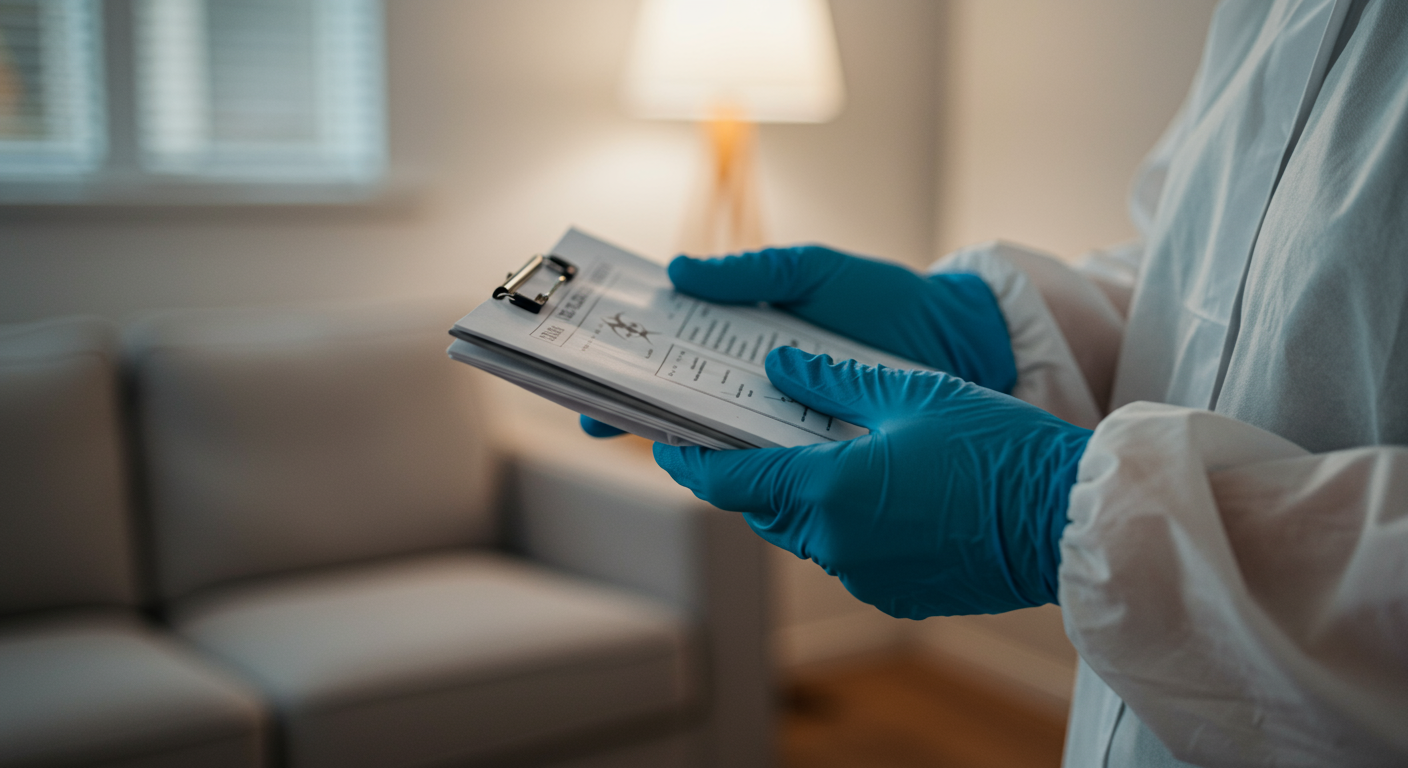Biohazard cleanup is a specialized field that requires extensive training, certification, and expertise. In Florida, where strict regulations govern the handling of hazardous materials, obtaining the proper certification is essential for anyone looking to enter this industry. This guide will walk you through the requirements, training programs, and career opportunities available for biohazard cleanup professionals in Florida.
Understanding Biohazard Cleanup
Definition and Scope of Biohazard Cleanup
Biohazard cleanup involves the safe removal and disposal of biological and hazardous materials that pose a risk to human health. These materials can include blood, bodily fluids, infectious agents, and chemical contaminants. The scope of biohazard cleanup extends to crime scenes, trauma sites, hoarding situations, and areas affected by infectious diseases.
Professionals in this field must adhere to strict safety protocols to prevent contamination and ensure public safety. The job requires not only technical skills but also a deep understanding of health risks and environmental regulations.
Importance of Professional Cleanup Services
Professional biohazard cleanup services are crucial for maintaining public health and safety. Untrained individuals attempting to clean hazardous materials risk exposure to dangerous pathogens and chemicals. Certified professionals use specialized equipment and follow established guidelines to ensure thorough decontamination.
In Florida, where natural disasters like hurricanes can lead to biohazard situations, the demand for skilled cleanup technicians is particularly high. Hiring certified experts ensures compliance with state and federal regulations, protecting both property owners and the environment.
Certification Requirements in Florida
Overview of State Regulations and Compliance
Florida has stringent regulations for biohazard cleanup to protect public health and the environment. Companies and individuals must comply with guidelines set by agencies like the Florida Department of Health and the Occupational Safety and Health Administration (OSHA). These regulations cover everything from waste disposal to worker safety.
To legally perform biohazard cleanup in Florida, professionals must obtain certifications that demonstrate their knowledge and skills. These certifications are often required by employers and are a key factor in building trust with clients.
Key Certifications: IICRC and IJCSA Explained
- IICRC Certification: This certification focuses on the technical aspects of biohazard cleanup, including decontamination procedures, safety protocols, and waste disposal. It is widely recognized and often a prerequisite for employment in the industry.
- IJCSA Certification: This certification emphasizes customer service and business management skills, making it ideal for those looking to start their own biohazard cleanup business.
Both certifications require completing a training program and passing an exam. Continuing education is also necessary to maintain certification and stay updated on industry standards.
Training and Skills Development
Recommended Training Programs and Courses
Training is a critical component of becoming a certified biohazard cleanup technician. Several organizations offer specialized courses that cover topics like hazardous materials handling, personal protective equipment (PPE) usage, and decontamination techniques.
Some of the top training programs include:
- IICRC Trauma and Crime Scene Cleanup Course: This course provides comprehensive training on cleaning and restoring areas affected by trauma and crime scenes.
- OSHA HAZWOPER Training: This program focuses on hazardous waste operations and emergency response, equipping technicians with the skills needed to handle biohazard situations safely.
- American Bio Recovery Association (ABRA) Certification: ABRA offers advanced training for biohazard cleanup professionals, including modules on infectious disease control and chemical spill response.
Essential Skills for Biohazard Cleanup Technicians
In addition to formal training, biohazard cleanup technicians must possess a range of skills to excel in their roles. These include:
- Attention to Detail: Ensuring thorough decontamination requires meticulous attention to detail.
- Physical Stamina: The job often involves long hours and physically demanding tasks.
- Emotional Resilience: Working in traumatic environments can be emotionally challenging, making resilience a crucial trait.
- Technical Knowledge: Understanding the science behind decontamination and waste disposal is essential for effective cleanup.
Career Opportunities in Biohazard Cleanup
Job Prospects and Industry Demand
The biohazard cleanup industry offers a variety of career opportunities, from entry-level technician roles to management positions. In Florida, the demand for skilled professionals is growing due to factors like population growth, natural disasters, and an increased focus on public health.
Common job titles in this field include:
- Biohazard Cleanup Technician
- Trauma Scene Technician
- Hazardous Materials Specialist
- Environmental Health and Safety Officer
Salaries in the industry are competitive, with entry-level positions starting at around $40,000 per year and experienced professionals earning upwards of $70,000 annually.
How to Start Your Career in Biohazard Cleanup
Starting a career in biohazard cleanup requires a combination of education, certification, and hands-on experience. Here are the steps to get started:
- Complete Required Training: Enroll in a recognized training program to gain the necessary skills and knowledge.
- Obtain Certification: Earn certifications like IICRC or IJCSA to demonstrate your expertise.
- Gain Experience: Look for entry-level positions or internships to build practical experience.
- Network with Industry Professionals: Join organizations like ABRA to connect with other professionals and stay updated on industry trends.
For those interested in entrepreneurship, starting a biohazard cleanup business can be a lucrative option. However, it requires a thorough understanding of state regulations, business management skills, and a commitment to providing high-quality services.

Conclusion
Biohazard cleanup is a rewarding yet challenging career that plays a vital role in protecting public health and safety. In Florida, obtaining the proper certification and training is essential for success in this field. By understanding the certification requirements, investing in quality training, and developing the necessary skills, you can build a fulfilling career in biohazard cleanup.
Whether you’re looking to work for an established company or start your own business, the opportunities in this industry are vast. With the right preparation, you can make a meaningful impact while enjoying a stable and lucrative career.
For more insights into biohazard cleanup and related topics, explore our comprehensive guide on biohazard remediation.


